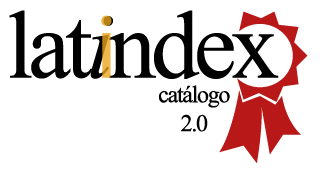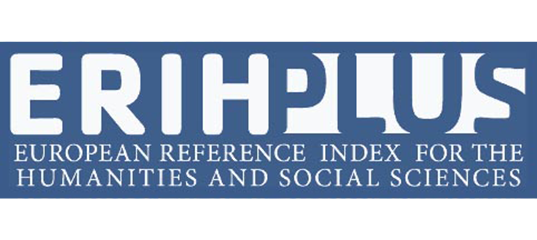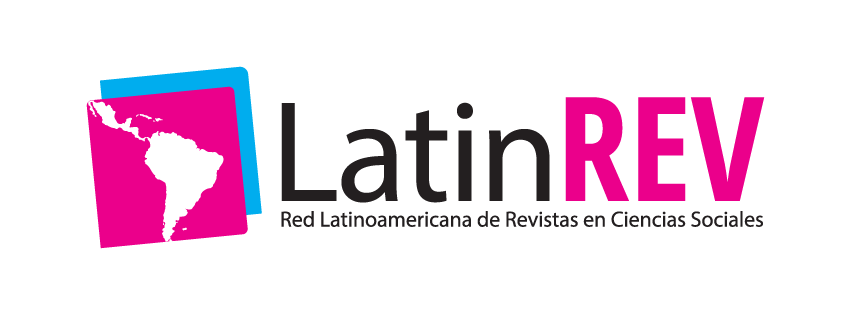Mobile App development using the MEAN Stack and IONIC framework: A case study in a transport company
Abstract
The use of mobile applications has become a relevant transactional component within an organization. For this reason, a mobile information system for route management was developed within the heavy transport company Torres Revelo S.A, based on the agile SCRUM development methodology and the MEAN Stack and Ionic framework based on JavaScript. In this project, it was subjected to a usability test based on the ISO / IEC 25010 standard, taking intelligibility, learning, operability, protection against user errors, aesthetics, and accessibility as references. A 26-question questionnaire was used with the Nielsen method, applying to a total of 73 users throughout the prototype-based application development process. By tabulating the results obtained, the chi-square test was applied to determine that the mobile and web application is easy to use, learn, and allow the user to trace the shortest route. These processes allow for better information management within the company.
Downloads
Metrics
References
H. Falaki, R. Mahajan, S. Kandula, D. Lymberopoulos, R. Govindan, y D. Estrin, “Diversity in smartphone usage”, en MobiSys’10 - Proceedings of the 8th International Conference on Mobile Systems, Applications, and Services, 2010, pp. 179–194.
P.-S. Nicoară y I. Haidu, “A GIS BASED NETWORK ANALYSIS FOR THE IDENTIFICATION OF SHORTEST ROUTE ACCESS TO EMERGENCY MEDICAL FACILITIES”, 2014.
R. Bajaj, S. L. Ranaweera, y D. P. Agrawal, “GPS: location-tracking technology”, Computer (Long. Beach. Calif)., vol. 35, núm. 4, pp. 92–94, may 2008.
A. Karanjit, “MEAN vs. LAMP Stack”, 2016.
S. Yusuf, “Ionic Framework By Example”, 2016. [En línea]. Disponible en: https://books.google.com.ec/books?hl=es&lr=&id=LQMcDAAAQBAJ&oi=fnd&pg=PP1&dq=ionic+framework&ots=bqq30jnLC_&sig=1Yjqli9N106EXH4-MlN98M4MnE0&redir_esc=y#v=onepage&q=ionic framework&f=false. [Consultado: 10-feb-2020].
J. Salazar, Á. T. Casallas, J. C. Linares, A. Lozano, y Y. L. Valbuena, TIA Tecnología, investigación y academia, vol. 6, núm. 2. [s.n.], 2018.
S. J. Vaughan-Nichols, “Will mobile computing’s future be location, location, location?”, Computer (Long. Beach. Calif)., vol. 42, núm. 2, pp. 14–17, 2009.
M. Singhal y A. Shukla, “Implementation of Location based Services in Android using GPS and Web Services”, 2012.
A. Chandra, S. Jain, y M. A. Qadeer, “GPS locator: An application for location tracking and sharing using GPS for Java enabled handhelds”, en Proceedings - 2011 International Conference on Computational Intelligence and Communication Systems, CICN 2011, 2011, pp. 406–410.
W. S. El-Kassas, B. A. Abdullah, A. H. Yousef, y A. M. Wahba, “Taxonomy of Cross-Platform Mobile Applications Development Approaches”, Ain Shams Eng. J., vol. 8, núm. 2, pp. 163–190, jun. 2017.
S. McIlroy, N. Ali, y A. E. Hassan, “Fresh apps: an empirical study of frequently-updated mobile apps in the Google play store”, Empir. Softw. Eng., vol. 21, núm. 3, pp. 1346–1370, jun. 2016.
S. Hassan, C. Tantithamthavorn, C. P. Bezemer, y A. E. Hassan, “Studying the dialogue between users and developers of free apps in the Google Play Store”, Empir. Softw. Eng., vol. 23, núm. 3, pp. 1275–1312, jun. 2018.
J. Sauro y J. Lewis, “Quantifying the User Experience: Practical Statistics for User Research - Jeff Sauro, James R Lewis - Google Libros”, 2016. [En línea]. Disponible en: https://books.google.com.ec/books?hl=es&lr=&id=USPfCQAAQBAJ&oi=fnd&pg=PP1&dq=user+experience&ots=Vx2cY47pUn&sig=etEdl4LVCZ4De7bePsgnTtKInp4&redir_esc=y#v=onepage&q=user experience&f=false. [Consultado: 10-feb-2020].
M. Bharath, K. V. Reddy, y R. Dey, “Implementation of IoT Architecture for Intruder Alert System using MQTT Protocol and MEAN Stack”, en 2018 4th International Conference on Computing Communication and Automation (ICCCA), 2018, pp. 1–5.
J. S. Heredia y G. C. Sailema, “Comparative Analysis for Web Applications Based on REST Services: MEAN Stack and Java EE Stack”, KnE Eng., vol. 3, núm. 9, p. 82, dic. 2018.
T. Nevalainen, “MEAN Software Stack”, 2018.
M. Huynh, P. Ghimire, y D. Truong, “HYBRID APP APPROACH: COULD IT MARK THE END OF NATIVE APP DOMINATION?”, 2017.
D. Flanagan, “JavaScript: The Definitive Guide - David Flanagan - Google Libros”, 2006. [En línea]. Disponible en: https://books.google.com.ec/books?hl=es&lr=&id=k0CbAgAAQBAJ&oi=fnd&pg=PT6&dq=javascript&ots=O3trjjkyrV&sig=H4n_jB_VWPLRhv1rdXlIaR-lHUg&redir_esc=y#v=onepage&q=javascript&f=false. [Consultado: 30-ene-2020].
Huenei IT Services, “Ventajas del Framework Ionic | Huenei”, 2017. [En línea]. Disponible en: https://www.huenei.com/index.php/es/2017/06/06/ventajas-de-ionic-framework/. [Consultado: 05-sep-2019].
L. Enciso-Quispe, J. Quichimbo, F. Luzon, E. Zelaya-Policarpo, y P. A. Quezada-Sarmiento, “REST architecture in the implementation of a web and mobile application for vehicular tariff rotating parking”, en 2017 12th Iberian Conference on Information Systems and Technologies (CISTI), 2017, pp. 1–6.
H. García, “Características de los servicios REST”, 2016. [En línea]. Disponible en: https://www.comunicacionesindustrialeslogitek.com/caracteristicas-de-los-servicios-rest/. [Consultado: 11-sep-2019].
N. Wang, X. Chen, G. Song, Q. Lan, y H. R. Parsaei, “Design of a New Mobile-Optimized Remote Laboratory Application Architecture for M-Learning”, IEEE Trans. Ind. Electron., vol. 64, núm. 3, pp. 2382–2391, mar. 2017.
E. Elrom, Pro MEAN Stack Development. Berkeley, CA: Apress, 2016.
A. Ramos y M. Ramos, “Aplicaciones Web 2.a edición - 9788428398756 - ALICIA RAMOS MARTÍN, MARIA JESUS RAMOS MARTÍN - Resumen y compra del libro - paraninfo.es”, 2014. [En línea]. Disponible en: https://www.paraninfo.es/catalogo/9788428398756/aplicaciones-web-2-a-edicion. [Consultado: 11-sep-2019].
S. Ouhbi, A. Idri, J. Fernández-Alemán, A. Tova, y H. Benjelloun, “Applying ISO/IEC 25010 on Mobile Personal Health Records”, 2015.
D. Chellappa, “Android Application Generator for Mobile Platform”, 2017. [En línea]. Disponible en: http://repo.bg.pw.edu.pl/index.php/en/r#/info/master/WUT4282e622dd624144af49897f29a8ee6c/. [Consultado: 10-feb-2020].
PDF (Español (España)) 573
Authors maintain the rights to the articles and are therefore free to share, copy, distribute, execute, and publicly communicate the work on their personal websites or in institutional deposits, after its publication in this journal, as long as they provide bibliographic information that certifies its publication in this journal.
The works are under one https://creativecommons.org/licenses/by-nc-nd/4.0/




























